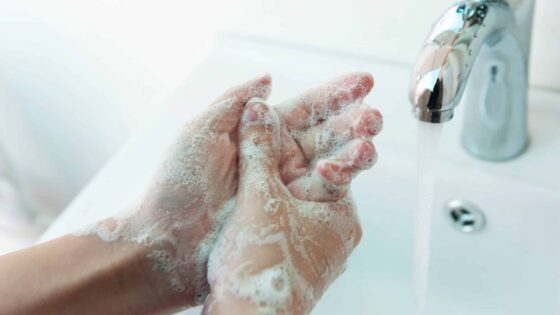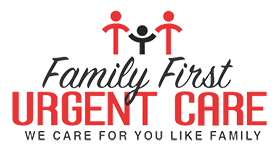
It’s the holiday season, and that means spending time with loved ones at family gatherings, festive parties, and dinners. However, it’s essential to keep in mind that the holiday period can also present health risks. With the flu season in full swing, and COVID-19 still a concern, staying healthy is more important than ever. One essential aspect of staying healthy is proper handwashing. In this article, we’ll look at the importance of washing your hands to stay healthy during holiday and family gatherings and go over proper handwashing steps.
Handwashing has long been considered the primary method for reducing the spread of illnesses. During flu season, it can help prevent the spread of viruses and bacteria that cause infections like the flu. But handwashing is also an essential practice during the COVID-19 pandemic. The CDC cites handwashing as the best way to prevent the spread of COVID-19 and recommends handwashing for at least 20 seconds with soap and water.
Handwashing is particularly critical during holiday and family gatherings because these events often involve larger groups of people. Washing your hands regularly can help reduce the chance of spreading germs and illnesses, especially after being in close contact with people you may not usually see.
Key Times to Wash Hands
You can help yourself and your loved ones stay healthy by washing your hands often, especially during these key times when you are likely to get and spread germs:
- Before, during, and after preparing food
- Before and after eating food
- Before and after caring for someone at home who is sick with vomiting or diarrhea
- Before and after treating a cut or wound
- After using the toilet
- After changing diapers or cleaning up a child who has used the toilet
- After blowing your nose, coughing, or sneezing
- After touching an animal, animal feed, or animal waste
- After handling pet food or pet treats
- After touching garbage
How to Properly Wash Your Hands
Proper handwashing technique includes using warm water and soap to thoroughly clean all parts of your hands, including between fingers, under nails, and the backs of your hands. Scrub your hands for at least 20 seconds and rinse thoroughly with clean water. It’s important to dry your hands using a clean towel or air dry. Hand sanitizer can also be useful in situations where soap and water are not readily available, but it’s not a replacement for handwashing.
Handwashing Facts
- On average, you come into contact with 300 surfaces every 30 minutes, exposing you to 840,000 germs.
- Only about 5% of people wash their hands correctly.
- Most people only wash their hands for 6 seconds.
- Around 33% of people don’t use soap when washing their hands.
- Up to 80% of communicable diseases are transferred by touch.
- Failing to wash hands correctly contributes to nearly 50% of all foodborne illness outbreaks.
- Only 20% of people wash their hands before preparing food, and 39% before eating food.
- About 7% of women and 15% of men do not wash their hands at all after using the bathroom.
- Most bacteria on our hands is on the fingertips and under the nails.
- Damp hands are 1,000x more likely to spread bacteria than dry hands.
- There is fecal matter on 10% of credit cards, and 16% of cellphones.
- Elevator buttons harbor 22% more bacteria than toilet seats.
The importance of washing your hands during holiday and family gatherings cannot be overstated. Proper handwashing techniques can reduce the spread of germs and illnesses. It’s important to use warm water and soap, wash your hands for at least 20 seconds, and dry your hands thoroughly. Remember, hand sanitizers can be helpful as a temporary solution when you can’t wash your hands. And don’t forget to moisturize your hands after washing them to maintain healthy skin. With just a few simple steps, you can help keep yourself and your loved ones healthy during the holiday season and beyond. For more articles, visit www.FamilyFirstUrgentCareConroe.com.
- Cultural Competency in Urgent Care: Providing Inclusive Patient Care - April 11, 2025
- Key Facts About Hormone Replacement Therapy and Women’s Wellness - March 24, 2025
- Urgent Care for the Elderly: Specialized Services for Senior Patients - March 24, 2025



